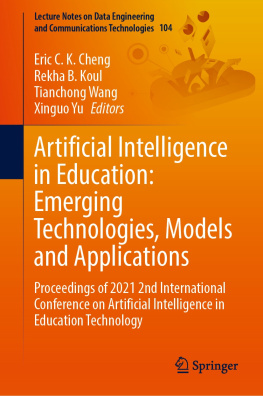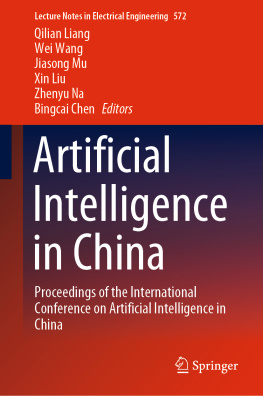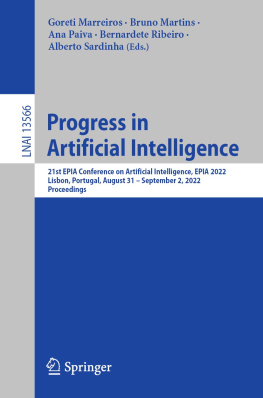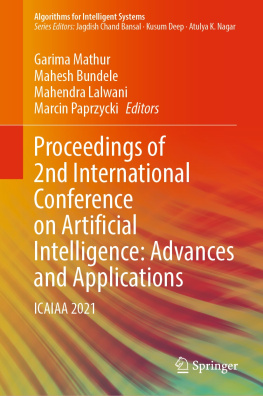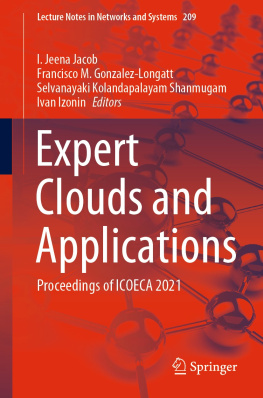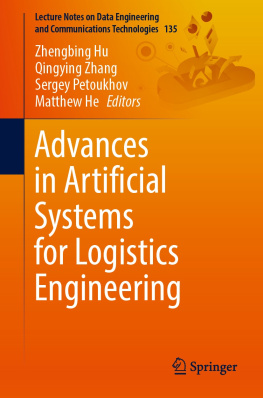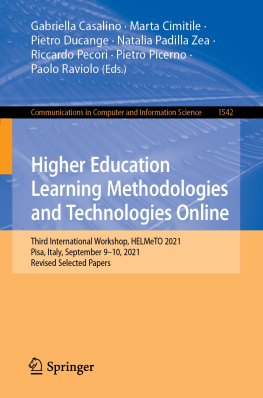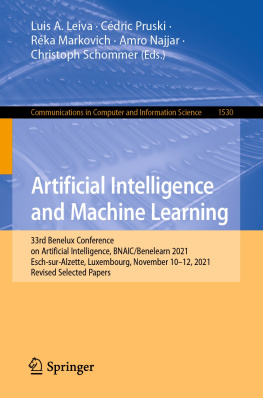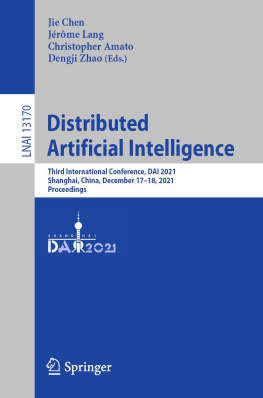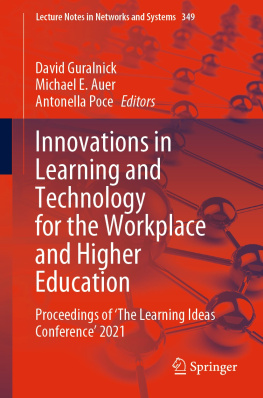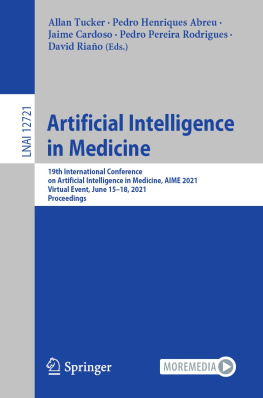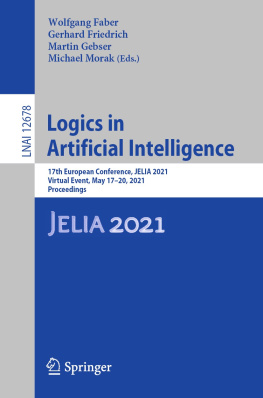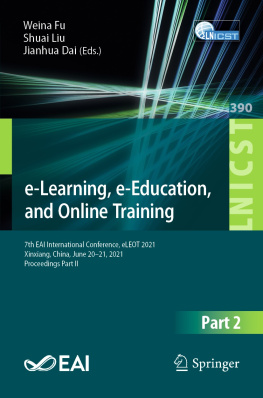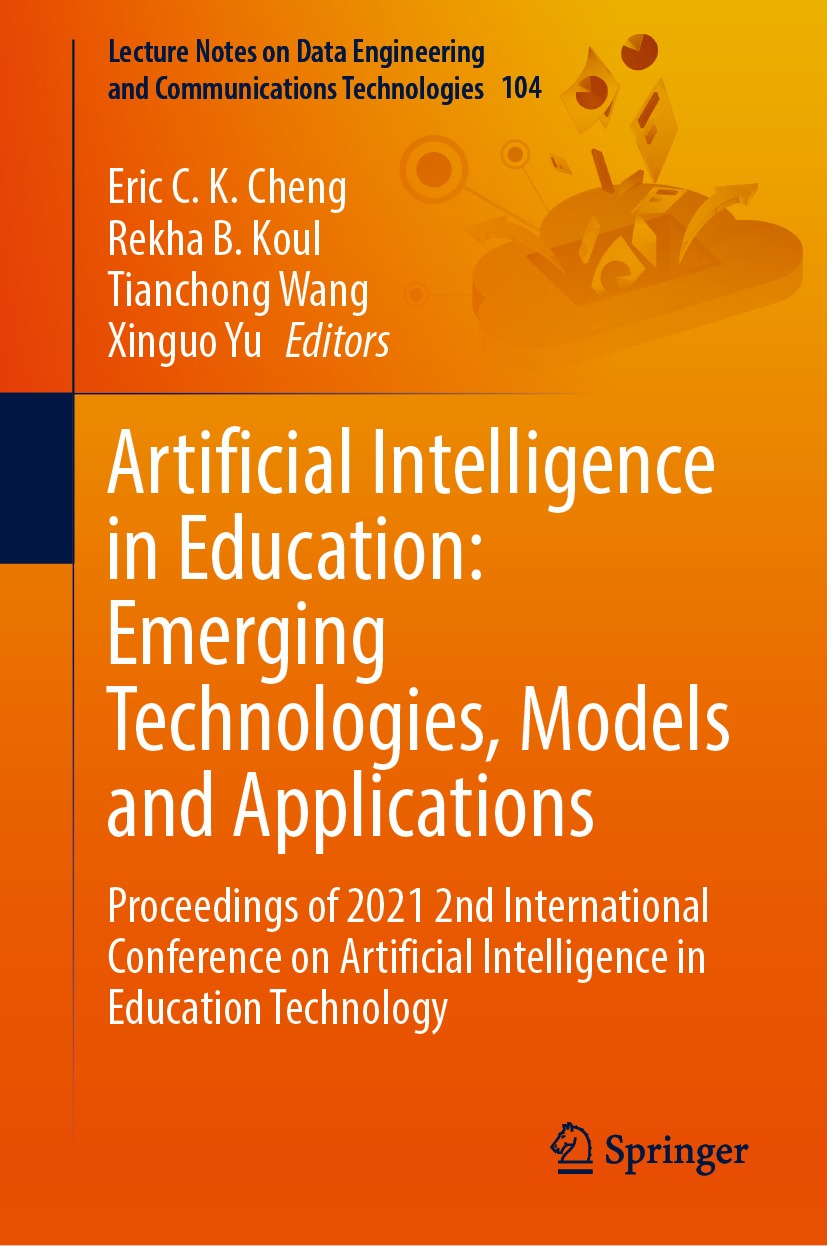Eric C. K. Cheng - Artificial Intelligence in Education: Emerging Technologies, Models and Applications: Proceedings of 2021 2nd International Conference on Artificial Intelligence in Education Technology
Here you can read online Eric C. K. Cheng - Artificial Intelligence in Education: Emerging Technologies, Models and Applications: Proceedings of 2021 2nd International Conference on Artificial Intelligence in Education Technology full text of the book (entire story) in english for free. Download pdf and epub, get meaning, cover and reviews about this ebook. City: Singapore, year: 2022, publisher: Springer, genre: Science. Description of the work, (preface) as well as reviews are available. Best literature library LitArk.com created for fans of good reading and offers a wide selection of genres:
Romance novel
Science fiction
Adventure
Detective
Science
History
Home and family
Prose
Art
Politics
Computer
Non-fiction
Religion
Business
Children
Humor
Choose a favorite category and find really read worthwhile books. Enjoy immersion in the world of imagination, feel the emotions of the characters or learn something new for yourself, make an fascinating discovery.
- Book:Artificial Intelligence in Education: Emerging Technologies, Models and Applications: Proceedings of 2021 2nd International Conference on Artificial Intelligence in Education Technology
- Author:
- Publisher:Springer
- Genre:
- Year:2022
- City:Singapore
- Rating:3 / 5
- Favourites:Add to favourites
- Your mark:
Artificial Intelligence in Education: Emerging Technologies, Models and Applications: Proceedings of 2021 2nd International Conference on Artificial Intelligence in Education Technology: summary, description and annotation
We offer to read an annotation, description, summary or preface (depends on what the author of the book "Artificial Intelligence in Education: Emerging Technologies, Models and Applications: Proceedings of 2021 2nd International Conference on Artificial Intelligence in Education Technology" wrote himself). If you haven't found the necessary information about the book — write in the comments, we will try to find it.
This edited book is a collection of selected research papers presented at the 2021 2nd International Conference on Artificial Intelligence in Education Technology (AIET 2021), held in Wuhan, China on July 2-4, 2021. AIET establishes a platform for AI in education researchers to present research, exchange innovative ideas, propose new models, as well as demonstrate advanced methodologies and novel systems. Rapid developments in artificial intelligence (AI) and the disruptive potential of AI in educational use has drawn significant attention from the education community in recent years. For educators entering this uncharted territory, many theoretical and practical questions concerning AI in education are raised, and issues on AIs technical, pedagogical, administrative and socio-cultural implications are being debated.
The book provides a comprehensive picture of the current status, emerging trends, innovations, theory, applications, challenges and opportunities of current AI in education research. This timely publication is well-aligned with UNESCOs Beijing Consensus on Artificial Intelligence (AI) and Education. It is committed to exploring how best to prepare our students and harness emerging technologies for achieving the Education 2030 Agenda as we move towards an era in which AI is transforming many aspects of our lives. Providing a broad coverage of recent technology-driven advances and addressing a number of learning-centric themes, the book is an informative and useful resource for researchers, practitioners, education leaders and policy-makers who are involved or interested in AI and education.
Eric C. K. Cheng: author's other books
Who wrote Artificial Intelligence in Education: Emerging Technologies, Models and Applications: Proceedings of 2021 2nd International Conference on Artificial Intelligence in Education Technology? Find out the surname, the name of the author of the book and a list of all author's works by series.

